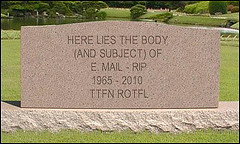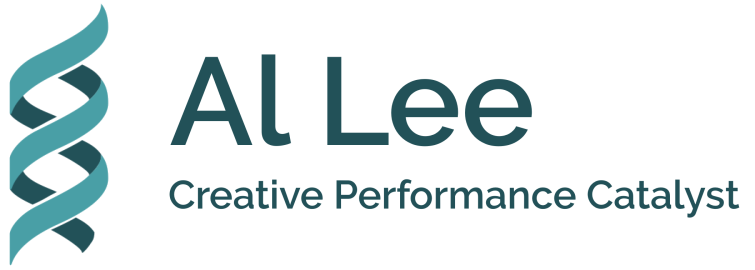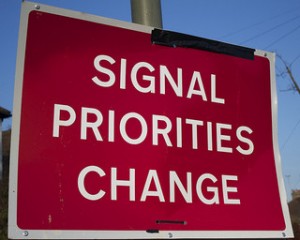 There is one change you can make this year that will lower your stress level and make you much more productive: Stop being a slave to email.
There is one change you can make this year that will lower your stress level and make you much more productive: Stop being a slave to email.
I know. Crazy talk right? What would happen if you didn’t check email every three minutes or respond immediately to every buzz, ding, or beep? The research shows you’ll be happier, less stressed and more productive.
What is the most important thing you do?
You are the only one who can answer that question (or perhaps your boss). If responding within minutes to every query and request is numero uno on your priority list (which may be true for some service professionals), then read no further. But if like the rest of us, email is just a tool that you use to help you get the real work done, then stop letting it run your life. You’ll be very glad you did.
The high price of email – performance and productivity
Email is an amazing tool, but combined with mobile connectivity it can become an addictive time, energy, and creativity-sucking monster. I don’t know about you, but I could spend nearly all day every day, just dealing with it.
But our most powerful productivity tool is our ability to focus, and email is perhaps the most potent focus-killing force known to man – only possibly surpassed by the cubicle. Every time you stop what you are doing to check your email or respond to a notification, your brain has to shift context to deal with the email and then shift back again when you return to the task at hand. That multitasking adds 20-50% more time to every task you perform. Do you really have that kind of time to waste? Think how much more you could get done if you stayed focused?
It is also a serious boat anchor when it comes to team performance. A study done at MIT found that communication styles were the most important factor in team performance, outweighing all other factors combined. Teams that had a higher degree of face-to-face communications performed far better than teams that emphasized phone and video communications, and in the worst case, teams that primarily used email and texting.
Taking Control
You might want to make sure that you are sitting down for this next piece. I’m suggesting that you turn off your email notifications and actually shut down your email program except for 3-4 scheduled times a day when you are specifically dealing with emails. Are there exceptions? Yes. Thousands. But if you make this your standard operating procedure, you’ll soon find that your stress level is going down, and you are much more productive and creative. It is quite liberating to have that monkey off your back.
If that previous paragraph made you break out into a cold sweat (yes, you are an addict), then try taking the relatively easy first step of only checking emails between tasks or focus sessions, or once every hour. That will help you to break that Pavlovian response every time you hear the bell ring. But most importantly, shut down your email program when you are not actively using it!
The benefits of checking email less often
A recent study at the University of British Columbia found that people who checked emails in chunks 3-4 times per day had lower stress levels after just one week, as compared to people who checked their emails constantly during the day.
In addition, a German study found that people who checked work emails in the evenings and on weekends had a much higher instance of headaches, anxiety, fatigue, stomach problems and insomnia.
Another benefit of spending less time on email is that it forces you to prioritize. You may not actually have time to watch that cat playing piano or look through 40 photos of dogs that look like their owners. It makes you deal with the emails that are necessary and the others may not make the cut.
What will people think?
They will probably think you are busy. But if it really is an issue, let the rest of your team and your clients know that you will respond to their emails within 24 hours, and if they need immediate assistance, to call.
Try this for one week and you’ll be a convert. Money-back guarantee!
[Photo courtesy of Beth Kanter]





